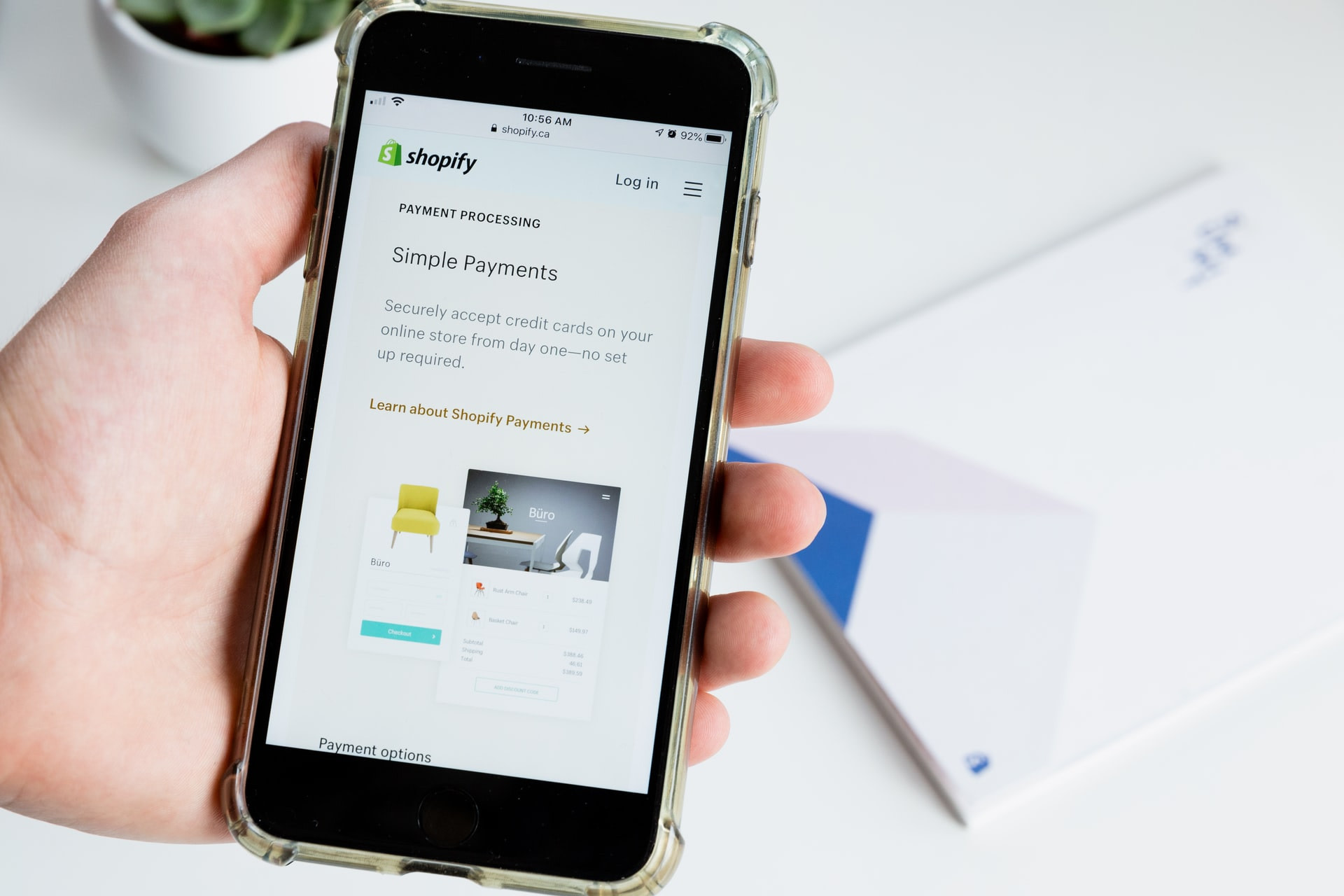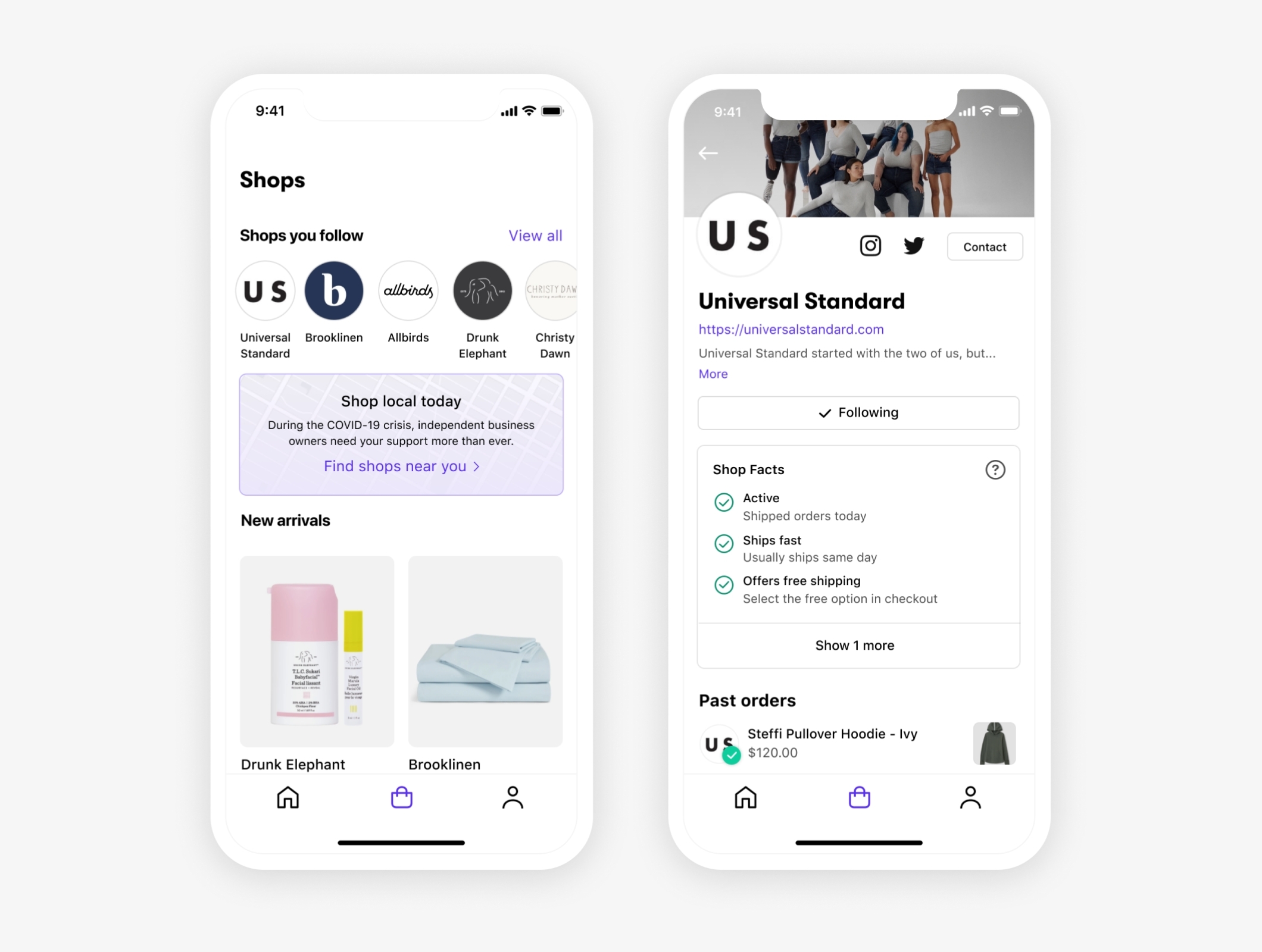Shopify Review: The Top Pros of Shopify’s E-Commerce Platform
- Shopify
- Entrepreneurship
- 5 Mins

What Makes Shopify a Unique E-Commerce Platform
Buying and selling products: it’s a functionality present on most social media platforms and countless other websites. With so many places to host store inventory and catch the attention of consumers, how do store owners choose which to use? There’s Amazon, Etsy, eBay, Facebook, storefront hosting platforms, and more — and store owners often use more than one mode of selling. However, among them, Shopify consistently ranks as one of the most popular. In fact, the platform currently hosts over 1,000,000 stores across 175 countries. Let’s take a look at Shopify’s key features to see what makes it such a popular platform.
Shopify’s Features
Most e-commerce platforms come with a list of pretty standard features. Of course, all feature the ability to buy and sell products from an individual store. Most have downloadable themes and drag-and-drop customisation functionality. You’ll find that most of the e-commerce platforms, especially software as a service (SaaS) ones, cost around the same amount. Some e-commerce platforms differ in how much functionality you can control, and that’s usually the hallmark difference that drives store owners’ preferences. You can see how Shopify stacks up against five other e-commerce competitors as a whole in a past blog here.
But Shopify must have characteristics and features that set it apart — why else would it be so popular? Here are some of the best parts about Shopify.
Ease of Use
Ease of use is a must for e-commerce platforms, because many store owners don’t have the coding experience to design a store on a more technical level. Many platforms are working on their ease of use, but that doesn’t mean they’re meeting the mark. Shopify guides new store owners through its interface, with a heavy emphasis on inventory functionality. It’s right at the crossroads of control and being user-friendly. In a trial up against BigCommerce and Wix, e-commerce platform testers all found Shopify to be the easiest to use.
Multiple Sales Channels
We mentioned above that store owners often hope to sell their products across multiple platforms. Doing so allows for increased visibility, customer loyalty, and sales. Luckily, Shopify understands this, and moving to Shopify doesn’t mean giving up your other online e-commerce marketplaces. With a Shopify store, you’re more than capable of selling across Facebook, Instagram, Amazon, and eBay, amongst others. Through Facebook Messenger, you can share products directly and grow customer relationships. On Amazon and eBay, Shopify provides access to their marketplace features and syncs inventory and sales. We can only imagine Shopify will continue growing and finding ways to integrate themselves into other platforms.

Express Themes For Restaurants
Now a year into the COVID-19 pandemic, many restaurants and quick-serve eateries have improved their digital presence. When dining is closed, online orders make up an overwhelming majority of the orders. With fewer avenues for sales (plus third-party delivery services taking such a big cut), most food-related business owners transitioned to Shopify. They implemented their “Express” themes, designed to accommodate non-traditional businesses. It was a quick and easy way to create an online store — a saving grace for eateries both small and large.

Shopify Balance & Payment Managing
We could talk for days about e-commerce platforms’ many ways of offering payment for customers, covering everything from gateway options to credit card fees. While you can go back and forth on which platform offers the best in payment options (though most are quite similar), Shopify has another payment-related feature that sets it above the rest. Through Shopify Balance, store owners can open accounts for small businesses. These accounts allow store owners to pay bills, track expenses, and even apply for funding from Shopify admin. Additionally, there’s a dedicated Shopify card and rewards program tailored to the merchant’s needs.
Shop App
It’s one thing to host a store, but providing publicity is in a completely different marketing realm. Shopify provides untouchable benefits to store owners through their Shop App. Shop App is a personal shopping app customers can use. It shows them stores they’ve either purchased from or might like, and allows them to see their favorite products and receive new recommendations. With over 16 million users, there’s bound to be customers that stumble across your store and purchase something — conversion that otherwise wouldn’t have happened. Promoting your store and reaching a wider audience? You couldn’t ask for more.

Abandoned Cart Recovery
Abandoned cart recovery is a functionality that brings customers back to a site after they’ve online shopped but failed to ever checkout. It’s usually in the form of an email, reminding the customer to not miss out on the products they loved. Overall, this functionality is an incredibly effective method for increasing conversion. Despite this, some e-commerce platforms don’t offer it at all while others require higher payment tiers to acquire access to the feature. On the opposite end of the spectrum, Shopify allows it for every site that has e-commerce ability. (Shopify Lite is excluded from abandoned cart recovery, but also doesn’t offer full e-commerce functionality.)
Unlock Shopify Features With Radiant
When combined with its limitless app store, Shopify’s multitude of functions is seemingly endless. For store owners, it can get confusing picking amongst them and choosing the right combinations for optimising conversion. As Shopify specialists, we work alongside ambitious brands to achieve even higher sales goals through growth, optimisation, and development. Get in touch today to see how you can elevate your Shopify present with the experts!




















